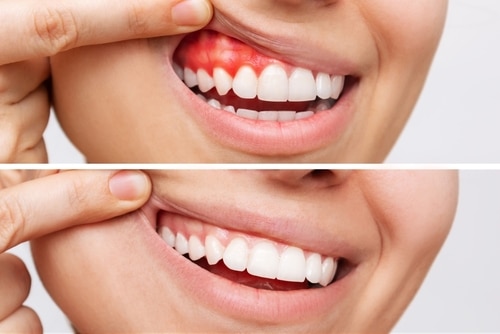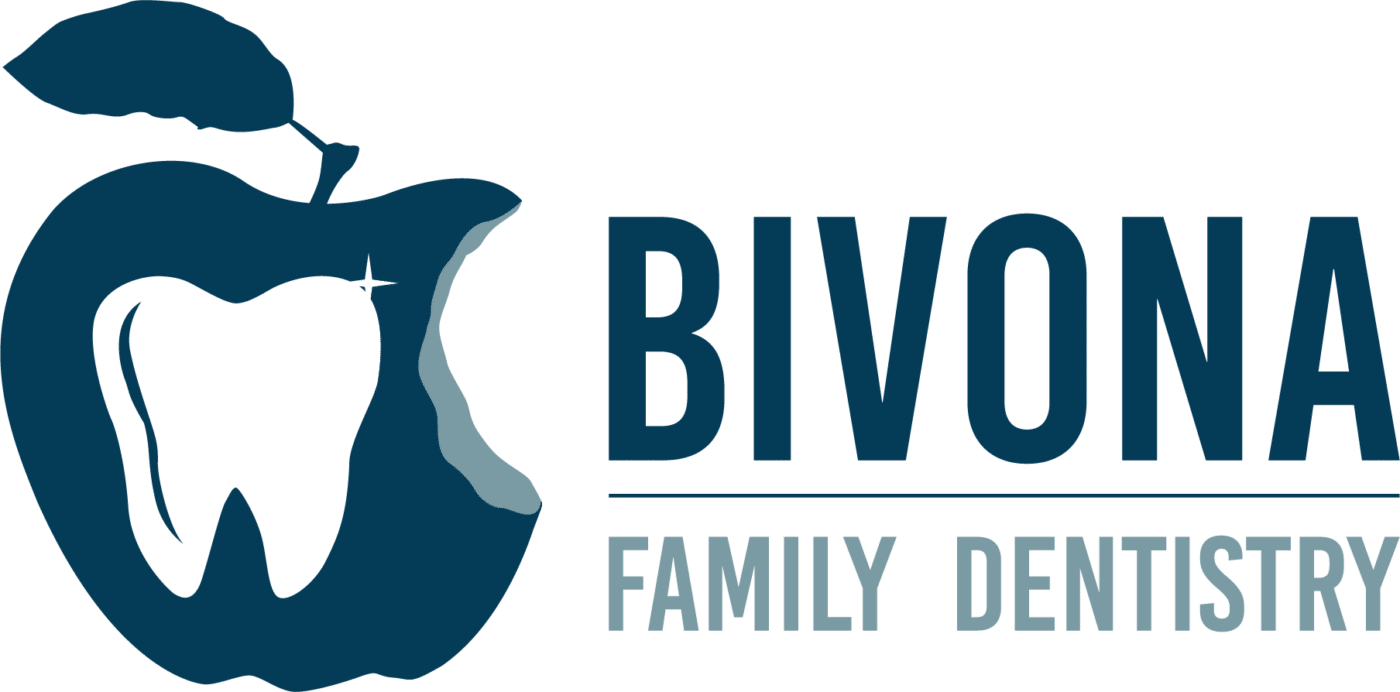Periodontal Treatment in Jasper, AL
Periodontal disease, also known as gum disease, is a surprisingly common infection. According to the National Institutes of Health, more than 42% of Americans over 30 have some form of periodontal disease—but many may not realize it. This infection doesn’t always make itself obvious right away, so knowing the early symptoms and regularly visiting the dentist are important preventative measures. In its early stages, we can easily reverse periodontal disease. However, if the infection progresses, it may require more invasive procedures and can lead to permanent damage, including receding gums, tooth loss, and system health issues. If you think you may have gum disease, we invite you to schedule a periodontal treatment at Bivona Family Dentistry.
Understanding Gum Disease
 Gum disease is a bacterial infection that migrates down your teeth into the gums, jawbone, and tissues supporting the teeth. It’s a common dental problem caused by poor oral hygiene, smoking, diabetes, or genetic factors. Unfortunately, it is the leading cause of tooth loss.
Gum disease is a bacterial infection that migrates down your teeth into the gums, jawbone, and tissues supporting the teeth. It’s a common dental problem caused by poor oral hygiene, smoking, diabetes, or genetic factors. Unfortunately, it is the leading cause of tooth loss.
It begins as mild inflammation known as gingivitis, and if not treated, it progresses to more advanced forms of periodontitis that can permanently affect your oral and overall health.
When bacteria remain on the teeth, they feed on leftover sugar and carbohydrates and create plaque, a colorless, film-like substance. If you run your tongue over your teeth and they feel “fuzzy,” that’s dental plaque. If you don’t remove plaque regularly, it will harden into tartar, which you can’t brush or floss away. Tartar causes cavities, bad breath, and ultimately gingivitis. At your routine cleanings, we remove plaque and tartar to prevent these problems from developing.
Preventing periodontal disease starts at home. Regular brushing, flossing, and rinsing with antibacterial mouthwash help remove bacteria that cause gingivitis. Eating a balanced diet and avoiding tobacco products also lower your risk of gum infections. However, there are areas of your mouth that you cannot clean at home. That’s why it’s so important to visit the dentist regularly. The hygienist will focus on these hard-to-reach areas to keep your mouth healthy.
What Are the Symptoms of Gum Disease?
It is important to treat gum disease early before it progresses to more advanced stages. If you’re experiencing any of these symptoms, contact Bivona Family Dentistry to schedule an appointment as soon as possible.
- Bleeding gums (often noticeable after brushing or flossing)
- Overly reddish or purplish gums
- Lingering bad breath or an unpleasant taste in your mouth
- Tooth soreness or pain while chewing
- Gum recession or changes to the gums’ position
- Loose teeth
Stages of Periodontal Disease
Periodontal disease develops over several stages, each requiring a more comprehensive treatment than the last.
- Gingivitis: This is the earliest stage of gum disease, usually characterized by reddish, bleeding gums. Consistently seeing blood in the sink after brushing is a sign from your body that you should visit the dentist. This stage is reversible with appropriate care, such as a professional dental cleaning and a good at-home oral hygiene regimen.
- Mild periodontitis: At this stage, bacteria have moved beneath the gums and begun to affect the surrounding bone. The gums may start to pull away from the teeth, creating pockets that trap bacteria and are hard to clean.
- Moderate periodontitis: The bacteria eat away at the ligaments and soft tissue that hold your teeth in place. You may notice bad breath, pus around your gum line, and increased tooth sensitivity. It’s important to seek treatment to prevent lasting damage.
- Advanced periodontitis: At this stage, the disease has progressed to a point where it has caused significant damage. However, it must still be treated to prevent further oral and general health problems. Without proper treatment, advanced periodontitis will lead to continued bone and tissue loss, causing teeth to loosen and fall out.
Your Periodontal Treatment Options
Based on the severity of your gum disease, our dental team at Bivona Family Dentistry may recommend one of several periodontal treatment options.
- Regular dental cleaning: During a regular cleaning, we remove plaque and tartar to decrease inflammation and reverse early-stage gum disease. We can also spot developing issues, allowing us to address them promptly.
- Deep cleaning: Also known as scaling and root planing, this procedure targets bacteria below your gum line that brushing and flossing can’t reach. It’s a slightly more invasive procedure, so we’ll begin by applying a local anesthetic to ensure your comfort. The scaling process involves scraping off all the plaque and bacteria both above and below your gums. Root planing involves cleaning and smoothing the surfaces of your tooth roots to remove bacteria and encourage the gums to reattach.
- Leukocyte-platelet rich fibrin (L-PRF) therapy: L-PRF therapy uses your own blood to treat gum disease by promoting tissue and bone regeneration. We take a small blood sample, spin it in a centrifuge, and apply the healing components directly to the affected gums. This process helps to encourage faster recovery and reduce inflammation.
- Oral surgery: If you’ve lost bone density due to gum disease, a bone grafting procedure can restore the bone. If plaque and tartar are so deep underneath your gums that we can’t reach them with other methods, you may need pocket reduction or flap surgery.
Take Charge of Your Gum Health Today
If you’ve noticed changes in your gums, like tenderness or bleeding, it’s time to take care of your smile. Gum disease can progress quality, but taking a proactive step by visiting Bivona Family Dentistry can make all the difference.
Let’s work together to restore your gum health and keep your smile healthy for years to come. Schedule an appointment today and discover the best path forward.
Frequently Asked Questions
The healing time varies depending on the treatment required. You can resume normal activities immediately following a routine dental cleaning that addresses gingivitis.
A deep cleaning, such as scaling and root planing, generally requires one to two weeks of healing. However, individual cases may take longer.
Oral surgery requires a more extended recovery period. During your initial visit, we will provide a detailed overview of the healing process specific to your treatment.
Although receding gums won’t grow back on their own, effective treatments are available to stop further recession. Options like deep cleaning and, in more severe cases, oral surgery can help protect your gums and prevent additional damage.
The most important step is to maintain a thorough oral hygiene routine. By brushing, flossing, and visiting our office regularly, you can significantly reduce the risk of gum disease and keep your gums healthy. Prevention is always the best approach when it comes to preserving your smile.
Although gum disease can cause permanent damage, it’s never too late to seek treatment. Even advanced periodontal disease can be effectively managed with the right care. By following our recommendations and starting treatment as early as possible, you can protect your oral health and prevent further damage.
